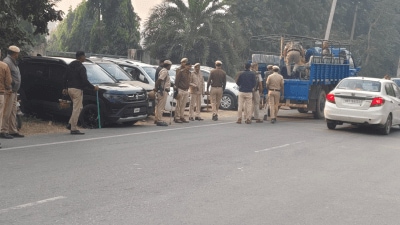A brahmastra for Unit Trust of India
Unit Trust of India (UTI) is too big to fail -- just now. It has to be bailed out because the entire financial system cannot be made to s...

Unit Trust of India (UTI) is too big to fail — just now. It has to be bailed out because the entire financial system cannot be made to suffer the fallout of a UTI collapse. But the Unit-64 scheme needs urgent restructuring and that cannot happen without somebody feeling the pain. That somebody cannot be the ordinary taxpayer.
The time to restructure Unit-64 painlessly was during the tenure of Dr.S.A.Dave. But he chose instead to wage a battle to preserve the unit scheme in it is pristine form and to keep it away out of regulation by the Securities and Exchange Board of India (SEBI). In this he had the whole-hearted support of the finance ministry, which buried the Vaghul committee report recommending the restructuring of UTI and ignored the fact that the 64 scheme’s NAV had already dipped dangerously close to the repurchase price. UTI then began to dip into reserves to maintain dividend and Dr.Dave chose to dismiss my criticism as motivated attacks on his policies.
UTI now needs adramatically impossible recovery of the stock market for NAV to inch above par value. Since betting on a recovery seems far-fetched, something will have to be done, that too in a finite time-frame. A temporary bail-out of UTI may have public support, but a continuous line of support from the government, without restructuring Unit 64 scheme is clearly material for a public interest litigation. UTI has also closed some of its options by committing to its corporate investors that it will raise the repurchase price of units next month.
There is only one real solution to UTI’s problem and it is rather drastic. UTI can pump up the value of its portfolio by identifying certain companies and forcing its promoters to buy back their equity at well above market prices. Why would they want to pay more to buy back their shares? Simply because UTI could otherwise sell them in bulk to the highest bidder.
The takeover battles for Raasi Cements and Indal have shown that it is not only a predator who is willingto pay several times the market value to acquire a company, promoters also manage to scrounge up enough money to make counter bids at those prices. In both cases the acquisition price was at least thrice the market price before news of the takeover electrified the stock.
Such a move is bound to raise a storm of protest from industry against UTI’s perceived arm-twisting . Senior government officials will also argue that such a move will mean up handing over Indian industry to a few powerful industrialists or worse to multinationals with deep pockets. Frankly, the global economic climate is such, that only a select few multinationals will be willing to battle India’s confused policies and red-tape for a foothold in the market they should be welcomed. Moreover, take a look at some industrialists who preside over former blue chips-turned-sick or those whose shares are languishing because investors have no confidence in their management policies. While the companies languish, often with the BIFR,industrialists continue to own a fleet of luxury sedans and yachts, throw lavish parties and collect expensive art and antiques.
UTI will clearly have to identify companies who should be given an opportunity of first refusal to buy their shares. Firstly, it could pick up companies where institutional holding is large enough to attract genuine bidders. Enron may still be interested in paying better than market price to acquire a Calcutta Electric Supply Corporation or a BSES. Secondly, it should identify companies who have been demanding “privatisation of the private sector”.
UTI’s biggest losses have been on its holding of Grasim and Indian Rayon. Wouldn’t Kumaramangalam Bira be interested in buying back at least two per cent (allowed under SEBI’s creeping acquisition rules) of the equity of these shares. If the Dhoots of Videocon, officially advised by Jardine Fleming (and unofficially by Harshad Mehta) could offer twice its market price for a two per cent acquisition, the Modis, the Oswals, RPG,Singhania and the Birlas could surely do better. It is far better that they buy back their own equity at higher than market prices, rather than offer to bail out UTI by investing in units. I think it is only fair that Indian industrialists be forced to dip into their Swiss bank accounts to defend their right to manage their companies or be prepared to pay for years of mismanagement by giving up control. It is better than the average citizen paying the price for UTI remaining on a perpetual government dole funded by the exchequer.
UTI’s Chairman P.S.Subramanyam is aware and willing to experiment with such a solution. The question is, whether the government or even his own senior executives will support him, in the face of outraged protests from the corporate sector. Actually, UTI does not have to go after all companies.
Just three carefully chosen cases will set the cat among the pigeons and send promoters in a tizzy to improve performance. Most crucially this activist role of UTI will also lead to adramatic recovery of battered down stocks. Since UTI’s portfolio constitutes a large number of index scrips, it will also electrify stock indices and automatically improve the NAV of UTI’s scrips.



- 01
- 02
- 03
- 04
- 05




























